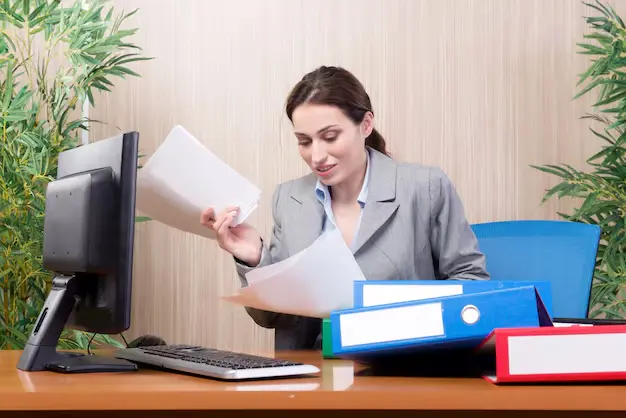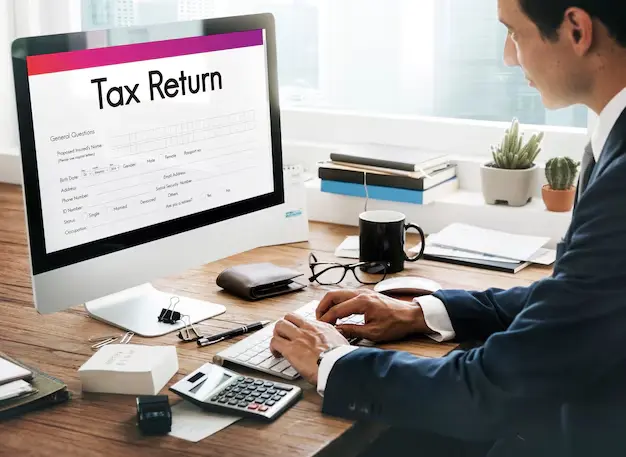Accounting practices offering their services to self-employed clients will find this guide beneficial because self assessment tax returns are real for them. Getting it right in the first place is very important; otherwise, it creates unnecessary problems for you and your client. So, let’s delve into the nitty-gritty of self assessment tax returns.
What is a Self Assessment Tax Return?
Taxes owed by salaried people in the UK are deducted automatically from their salaries via PAYE (Pay as you Earn) before they get it in their hands. However, for your self-employed clients, the HMRC will not know how much tax you owe, so you will need to inform them. Self-assessment is done for this reason.
Every self-employed person or person who receives any other income must submit a self assessment tax return online every year. The information provided in the tax return will be used to calculate the overall tax bill and determine whether you need a refund.If your clients are new to this, understanding how to register for self-assessment with HMRC is the first step.
Who Needs to File a Self Assessment?
There is a wide range of people who are required to do self assessment tax returns, including:
- Self-employed and earning more than £1,000
- If you are a partner in a business partnership
- Taxable income is more than £150,000
- Had to pay capital gain tax when you sold something that had its value increased
- Had to pay the High-Income Child Benefit Charge
Self-assessment is needed if your clients have an untaxed income source such as:
- Income from property rent
- Commissions
- Income for dividends, investments, and savings
- Foreign income
Self Assessment Accounting: Key Tips for Accuracy
Even for an experienced and professional accounting practice, handling self assessment tax returns can be an unnerving task, but that does not give you the excuse to compromise on accuracy. Maintaining accuracy is important to comply with HRMC regulations and avoid penalties. To keep that accuracy, we have listed some tips to follow while self-accounting.

Gather the Documents Well in Advance
Make it a priority to collect the relevant documents for self-assessment.
- Income records (employment, self-employment, rental income, etc.)
- Expense receipts and invoices
- P60, P45, or P11D forms (if applicable)
- Bank statements and investment income records
- Pension contributions and charitable donation receipts
Know the Allowable Expenses
Get to know the allowable expenses in detail. Some of the common ones are as follows:
- Travel costs (business-related)
- Office supplies
Use Digital Tools
Use the best accounting software like Xero or QuickBooks to automate calculations and reduce human errors.
Continuous Tracking of Deadlines
Maintaining track of the self-assessment return deadline is important so that you can submit before it and avoid penalties. You will be able to alert your clients and provide them with a list of required documents.
Offer All-Round Support
Provide year-round guidance to clients on tax-saving strategies and record-keeping best practices. Understandably, providing such support will be impossible for you, but it is possible with the backup support of the tax outsourcing service of accounting service providers. Before selecting any outsourcing service, make sure to analyse their case studies; it will aid you in making better choosing decisions.
Maintain Compliance with HMRC
Stay updated on the latest HMRC rules and guidelines, such as Making Tax Digital (MTD) requirements. Also, provide clients with timely advice on changes impacting self-assessment.
What are the Tax Return Deadlines?
If your client is eligible for a self-assessment, the next step is to get full information about deadlines. It must be noted that HMRC will receive the tax return or any money you owe before the deadline for last year. The tax year started on 6th April 2023 and will continue until 5th April 2024 (subject to change). To reduce the stress of complying with deadlines accounting practices can take help of the Tax Return Preparation Guide.
If your clients have not previously self-assessed, you must inform HMRC by 5 October. You can register for self-assessment to do this. The deadline for online tax returns is 31stt January 2025 midnight, and the paper tax return will be midnight on 31st October 2024.
The deadline to pay taxes owed is midnight on January 31st, 2025. However, if you make advance payments toward your bill (known as ‘payments on account’), there’s usually a second payment deadline of July 31st.
We understand that self assessment tax returns are complex, and doing them for multiple clients can be time-consuming. Hence, you should get tax outsourcing support from reputed service providers such as Corient to save time and minimise errors.
It is also important to note that the above deadline dates are subject to change; please visit the government websitefor the current dates.
What Are the Penalties If You Are Late?
Keeping a close watch on the self assessment tax return and payment of tax deadlines will ensure you get all the submission deadlines. If you miss it, your client will be subjected to a fine of £100 for up to 3 months delay. The fine will increase if you fail to pay after three months. We understand that the HMRC keeps changing these numbers. That’s why you must click on the self assessment tax return penalties for the latest numbers.
Methods of Filing a Tax Return

Self-assessed tax returns online are quite beneficial for both HRMC and your clients. That’s why HMRC is aggressively promoting MTD (Make Tax Digital). If your clients have not registered for online tax returns, you must first register them. Registration might take some time, so it is important to register well in advance so as not to clash with the tax filing dates.
Online self-assessment has multiple benefits, including improved accuracy of digital records, the ability to send digital records directly to HMRC, and wider productivity gains for your clients’ businesses.
Once you have registered your client, the HMRC will send a Unique Taxpayer Reference number. Follow the instructions accordingly to finish setting up the account. Once that is done, you can use the HMRC self assessment tax return online services to submit the tax return.
What You Need to Complete Your Tax Return
To complete a self assessment tax return successfully, you will require all the paperwork to contain accurate information. This information is as follows:
- 10-digit Unique Taxpayer Reference (UTR)
- National Insurance Number
- P11D or P9D, which shows any benefits and expenses
- Summary of any rental income and expenses
- Savings and investment statements showing how much you have earned in interest and other income like dividends
- Documents detailing your self-employment income, including receipts, bank statements and accounts
- Documents showing any contributions to charities or pensions that might be eligible for tax relief
Frequently Asked Questions (FAQ)
How does Making Tax Digital (MTD) affect self-assessment?
Under MTD, businesses keep digital records and submit tax returns through software. Accounting practices must ensure that their clients transition smoothly to MTD requirements.
What is a self assessment tax return?
Taxes owed by salaried people in the UK are deducted automatically from their salaries via PAYE (Pay as you Earn) before they get it in their hands. However, for your self-employed clients, the HMRC will not know how much tax you owe, so you will need to inform them. For this reason, self-assessment is done.
Who needs to file a self assessment tax return?
Businesses are required to file self assessment tax returns if they are:
1. Are you self-employed or a partner in a business?
2. Earn over £1,000 from property rental.
3. Have untaxed income, such as investments or savings interest.
4. Receive annual income over £100,000.
5. Earn income abroad or from foreign assets.
How do I file my self assessment tax return online in the UK?
Filing self assessment tax return online is simple if you follow these steps:
1. Register for self-assessment with HMRC
2. Gather all required documents
3. Log in to your HMRC online account
4. Complete the online return sections
5. Review and submit your return
6. Pay any tax owed
7. Keep digital records
What is the process for submitting the SA1 self-assessment form online?
For the registration for Self-Assessment, you will need a SA1 form if you’re client is not self-employed. For example, your client will need to pay tax on rental income, dividends, foreign income, capital gains, etc.). Here is how you will need to submit SA1 self-assessment form online.
1. Create (or sign in to) your Government Gateway account
2. Go to the SA1 online registration page
3. Fill in the required details
4. Full name and date of birth
5. National Insurance Number
6. Address and contact details
7. Reason for registering (rental income, foreign income, CGT, etc.)
8. Review and submit the form
9. Wait for your UTR (Unique Taxpayer Reference)
10. Activate your Self-Assessment online service
Conclusion
Self-assessment of tax returns is an important task that your client expects you to do flawlessly, so we understand the pressure on you. HMRC’s online self-assessment via MTD has made filing easy. However, you still face the challenge of dealing with multiple self-assessments, which is time-consuming. This situation can lead to human errors in filing, which can lead to penalties and legal issues for your clients. All this will damage your reputation.
Accounting outsourcing service providers easily handle situations like handling multiple assessments, and finding them in the UK is not an issue. Among them, you will have to find the best, like Corient UK, which grabs the eyeballs of many accounting practices. Our accountants are well-versed in the UK’s accounting standards and HMRC regulations and offer tech-savvy accounting services. Thanks to our services, we have brought transformation for multiple practices in the UK and can perform the same for you. Describe your problems or doubts on our website contact form, and our executive will contact you as soon as possible.
Looking forward to a long and gainful partnership.


